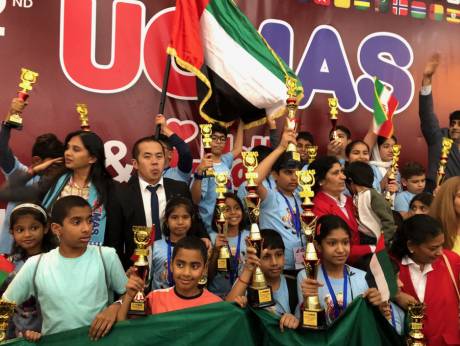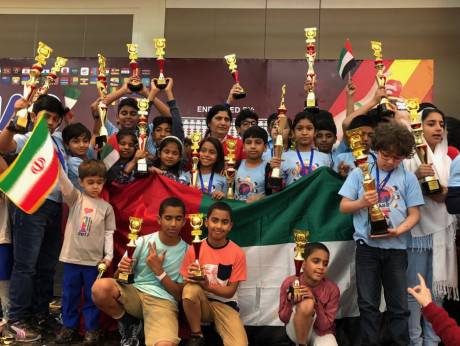
UAE students win big at mental maths contest
Contest involved answering 200 problems in eight minutes, among other categories.
Dubai: Triumphing over thousands of learners from 40 countries, 57 students from the UAE won big at the 22nd International UCMAS Abacus and Mental Arithmetic Competition 2017 held in Malaysia recently.
The contest involved answering a whopping 200 math problems in just eight minutes, among other categories.
In total, 62 children from the UAE, aged six to 13, participated, out of whom eight children bagged the first runners-up award, while 13 and 36 children received the second and third runners-up award, respectively.
Among the winners, seven-year-old Nikitha Prabhu from UCMAS Dubai, Al Nahda won the first runners-up award in the listening competition in Category A, said to be the toughest. Nikitha was the sole UAE winner in the company of 400 international students in the listening competition.
The UCMAS is a mental development programme promoting the concept of mental arithmetic system designed for children between six and 13 years of age.
V.G. Soundari Raj, managing director of UCMAS UAE, said: “This is indeed a proud moment for the UAE, and we would like to offer our heartiest congratulations to all the winners. We are fortunate that our leaders in the UAE have placed the correct emphasis on education and learning, helping us hone young minds, and encouraging youngsters to win challenges, both mental and physical. Through UCMAS, we have taken this vision forward in our own way, propelling youngsters’ mental growth and brain and skill development. It goes without saying that the children are the future of the UAE, and I’m quite optimistic that they will continue to bring laurels to the country in every field they step in.”
Journey of abacus
Abacus is a simple tool used since ancient times to do calculations. Although there are different versions, it usually consists of beads or disks that can be moved up and down on a series of sticks or strings within a small frame. The abacus itself doesn’t calculate — it just helps us remember what has been counted, making it easier to perform calculations mentally. The exact origins of the abacus are unclear. However, the modern Chinese abacus, which is still widely used in China and other countries, dates back to 1200AD. But the first versions of the abacus are thought to be much older. An Aztec ‘abacus’, estimated to date back to 900-1000AD, is made from maize threaded through strings mounted in a wooden frame.
Source: Gulf News

